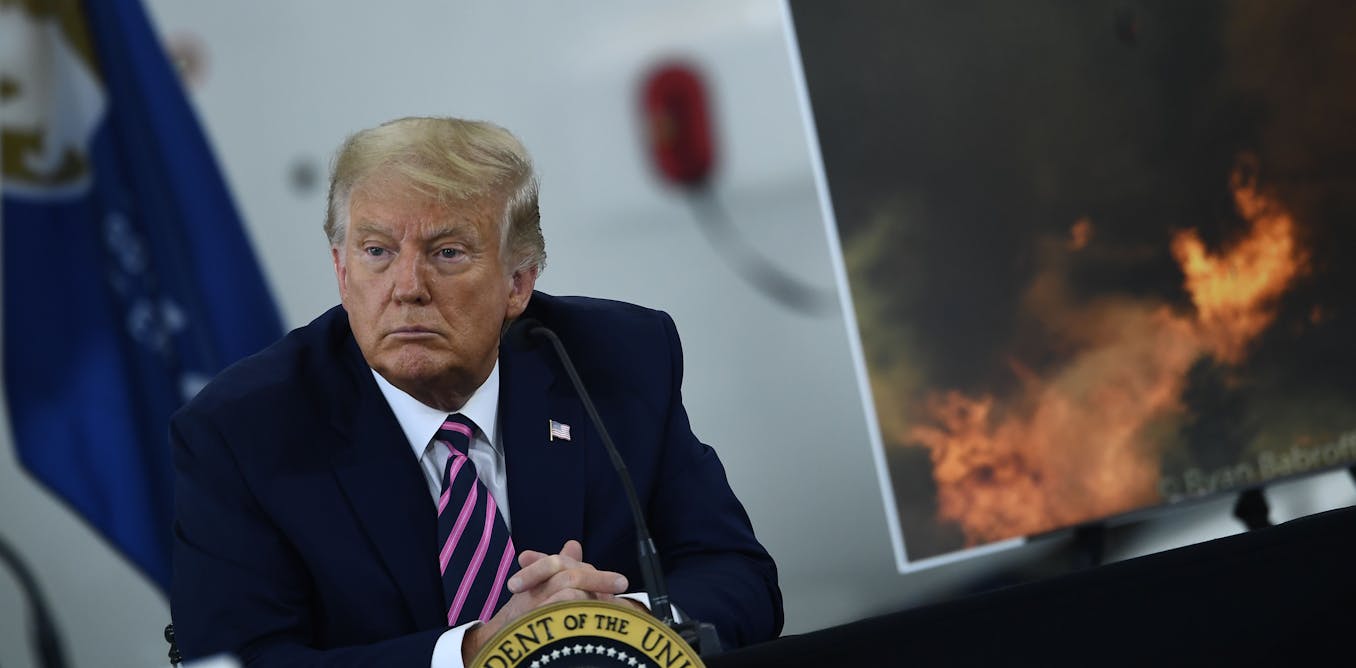WASHINGTON — Amid the whirl of orders Donald Trump issued in the early hours of his presidency, one was conspicuous in its absence: new tariffs on Canada and Mexico.
Trump had pledged to impose 25% tariffs on both countries on Day One of his presidency to pressure them to keep migrants and drugs out of the United States.
The delay doesn’t mean Trump is backing off the tariffs, his advisers say, but it does suggest he’s carving out more time to negotiate with both countries, study the issue further and put in place top economic advisers who are still moving through the Senate confirmation gauntlet.
Asked about the timing of the tariffs, Trump told reporters Monday night, “I think we’ll do it Feb. 1.” He reiterated that timeline Tuesday in taking questions again from the media, and said China could also be subject to a 10% tariff starting Feb. 1.
Yet the fine print of a memorandum about trade policy he issued Monday gave his aides a deadline of April 1 to send him a report assessing the migration and fentanyl flows from Mexico, Canada and China. The memo also called for recommendations the same day for “appropriate trade and national security measures to resolve that emergency.”
The study is to come from Trump’s commerce and homeland security secretaries. Neither of his nominees for those positions, Howard Lutnick and Kristi Noem, respectively, has yet been confirmed.
Peter Navarro, Trump’s senior counselor for trade and manufacturing, told NBC News in a statement Tuesday: “President Trump will move on his America First trade agenda forward swiftly based on a set of foundational studies. These actions will be done ‘in Trump time,’ which is to say as quickly as possible on behalf of our economic and national security.”
It would be tough to overstate Trump’s regard for tariffs, the trade tool he is expected to use both to gain leverage in foreign relations and to raise revenue to cover his tax cut plan. Speaking to the Economic Club of Chicago last year, Trump said, “The most beautiful word in the dictionary is ‘tariff.’”
Not all his economic advisers are as smitten, worrying about a tit-for-tat trade war with other countries. In Trump’s first term, a “globalist” group of advisers sparred with a protectionist wing — Navarro among them — that was more amenable to tariffs.
Those tensions are expected to carry over in the new term, with some advisers favoring a hawkish approach to tariffs and others a more targeted strategy.
Within Trump’s economic team, advisers have been discussing how to move forward on tariffs, a person familiar with the talks said. Despite Trump’s initial vow to slap tariffs on Canada and Mexico on his first day in power, people involved in the discussions didn’t expect that to happen even in Week One, the person said, noting that key economic and trade officials aren’t yet on the job.
Though Trump’s faith in tariffs appears ironclad, Canada believes he is open to a deal in which he backs off. What Trump says amounts to “positioning,” a Canadian official said in an interview, speaking on condition of anonymity.
"President Trump is a businessman and he is a negotiator, and a lot of his threats have been linked to things around the border that he wants to see changed," the official added.
Trump stepped up his complaints about Canada in his Q&A with reporters Tuesday. Both Canada and Mexico, he said, have “allowed millions and millions of people to come into our country that shouldn’t be here. They could have stopped them, and they didn’t.”
Tariffs could prove useful in paying for a sweeping, multitrillion-dollar legislative package that Trump hopes to pass involving his immigration, energy and tax agendas.
Said the person involved in discussions around a tariff plan, including on Capitol Hill: “Members that are involved in drafting [the package] know that they have to come up with a significant amount of revenue. And if the Trump administration does implement broad-based or universal tariffs, then they can account for that revenue. ... So that’s how they’ll do it.”
Newt Gingrich, a Trump ally and Republican former House speaker, offered another idea for putting tariff proceeds to good use: Send Americans checks through Trump’s proposed new “External Revenue Service."
“You can imagine a tariff rebate check to every American,” Gingrich said in an interview. “That would have considerable impact.”
This article was originally published on NBCNews.com

 German (DE)
German (DE)  English (US)
English (US)  Spanish (ES)
Spanish (ES)  French (FR)
French (FR)  Hindi (IN)
Hindi (IN)  Italian (IT)
Italian (IT)  Russian (RU)
Russian (RU) 























Comments